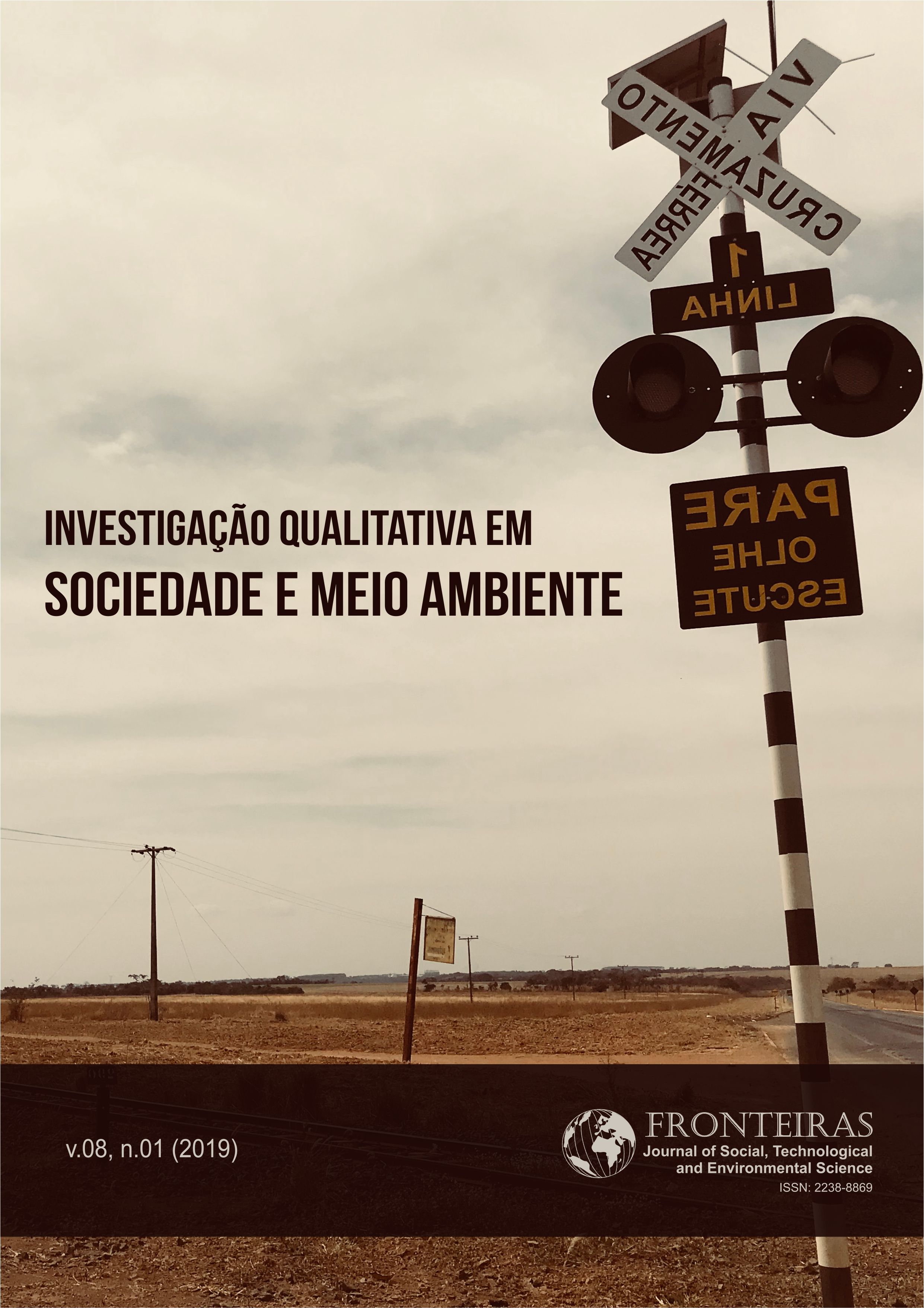Creation of the 'Happiness 360º' Model: Qualitative Analysis from Survey Responses
DOI:
https://doi.org/10.21664/2238-8869.2019v8i1.p93-112Palavras-chave:
Análise Qualitativa, Felicidade, Economia da FelicidadeResumo
A análise qualitativa está sendo cada vez mais importante no desenvolvimento das pesquisas, especialmente nos principais campos de investigação do autor: Economia da Felicidade e Comunicação para o Desenvolvimento. Para entender o que a felicidade significa e de que forma certas variáveis como género, alfabetização etc. influenciam o conceito de felicidade, com base num inquérito realizado em abril de 2018, analisaram-se as respostas à pergunta “O que é para si a Felicidade?”, usando o software de Análise Qualitativa - webQDA. A grande peculiaridade é que se trata de uma questão ‘aberta’. Pode considerar-se que a questão é recorrente e o trabalho é redundante, mas os resultados são muito interessantes do ponto de vista analítico. O principal objetivo do modelo ‘Felicidade 360o’ é apoiar as organizações na compreensão das expectativas da sua força de trabalho e ajudar na definição das suas políticas de gestão de recursos humanos e adaptá-las de acordo com o género, geração ou nível de educação, por exemplo.
Referências
Bentham J 2008. An introduction to the Principles of Morals and Legislation. In D Wootton (Ed.), Modern political thought: readings from Machiavelli to Nietzsche. Hacket Publishing Company, Inc, Cambridge, p. 576-591.
Bruni L 2004. L’economia, la felicitá e gli altri. Citá Nuova, Rome.
Bruni L, Porta P 2007. Handbook on the economics of happiness. Edward Elgar Publishing, Cheltenham.
Campetti P, Alves T 2015. Economia da Felicidade: Estudo Empírico sobre os Determinantes da Felicidade em Países Selecionados da América Latina. Pesquisa & Debate, 26(1-47):99-123.
Clark A, Frijters P, Shields M 2008. Relative income, happiness, and utility: an explanation for the Easterlin paradox and other puzzles. Journal of Economic Literature, 46(1):95-144.
Creswell JW 2008. Educational research: Planning, conducting, and evaluating quantitative and qualitative research. Pearson Education, Inc, NJ.
Denis H 2000. História do Pensamento Económico. Horizonte, Lisboa.
Denzin NK, Lincoln YS 2011. The SAGE Handbook of Qualitative Research. SAGE Publications, California.
Easterlin R 1974. Does economic growth improve human lot? Some empirical evidence. In A Davis, M Reder (Eds.). Nation and Households in Economic Growth: Essays in Honor of Moses Abromowitz. Academic Press, New York and Lodon.
Easterlin R 2001. Income and happiness: Towards a unified theory. The Economic Journal, 11(473):465-484.
Ferreira A 2003. O turismo como propiciador da regeneração dos centros históricos. PhD Thesis (Turismo), University of Aveiro.
Franco G 2012. Índices de Felicidade e desenvolvimento econômico. Fundação Calouste Gulberklain, Portugal.
Frey BS 2008. Happiness: A Revolution in Economics. MIT Press, Cambridge, MA.
Graham C 2005. Globalization, poverty, inequality and insecurity: Some insights from economics of happiness. Research Paper n.º 33. World Institute for Development Economics Research, United Nations University.
Graham C 2008. Economics of Happiness. In S Durlauf, L Steven (Eds.), The New Palgrave Dictionary of Economics. Palgrave Macmillan, New York.
Jevons W 1970. The theory of political economy. Penguin Books, Harmondsworth.
Layard R 1980. Human satisfactions and public policy. Economic Journal, 90(360):737-750.
Malthus T 2004. An essay on the principle of population. Oxford University Press, Oxford.
Melkert M, Vos K 2010. A Comparison of Quantitative & Qualitative Approaches: Complementarities and Trade-offs. Cabi Publishing, London.
Nery PF [n/a]. O que é economia da felicidade e como ela pode ser aplicada às políticas públicas? Economia e Governo, Brasil. Disponível em: www.brasil-economia-governo.org.br/wp-content/uploads/2014/10/o-que-e-economia-da-felicidade-e-como-ela-pode-ser-aplicada-as-politicas-publicas.pdf
Ng YK 1978. Economic growth and social welfare: the need for complete study of happiness. Kyklos, 32(4):575-587.
Niza C 2007. Economia da Felicidade e Política Social: Contributos da Ciência Comportamental para Orientação da Ação Pública com vista ao Desenvolvimento Humano. Master Thesis. Instituto Superior de Economia e Gerstão da Universidade Técnica de Lisboa, Lisboa.
Nykiel RA 2007. Handbook of Marketing Research Methodologies. Haworth, New York.
Pearce LD 2012. Mixed Methods Inquiry in Sociology. American Behavioral Scientist.
Phillimore J, Goodson L 2004. Qualitative Research in Tourism: Ontologies, Epistemologies and Methodologies. Routledge, London & New York.
Ricardo D 1821. On the principles of political economy and taxation. John Murray, London.
Rojas A 2007. La investigación empírica del turismo: método cientifico e proceso de investigación. In JG Brito (Coord.). La investigación social del turismo. Thomson, Madrid, p. 3-26.
Santos A 2015. Economia da Felicidade. Determinantes da Felicidade e a Influência das Dimensões Socioculturais. Um Estudo Multicultural. PhD Thesis. Universidade Autónoma de Lisboa, Lisboa.
Scitovsky T 1976a. Income and Happiness. Acta Oeconomica, 15(1):45-53.
Scitovsky T 1976b. The joyless economy: The psychology of human satisfaction. Oxford University Press, New York.
Smith A 1904. An inquiry into the nature and causes of the wealth of nations. Vol. 1. Methuen, London.
Souza FN, Costa AP, Moreira A 2016. Questionamento no Processo de Análise de Dados Qualitativos com apoio do software WebQDA. Eduser - Revista de Educação, 3(1):19-30. [cited 2018 Out 31]. Available from: https://www.eduser.ipb.pt/index.php/eduser/article/view/28.
Zucco V 2015. Economia da Felicidade: Evidências e Propostas Teóricas. Master Thesis. Centro de Ciências Sociais e Humanas da Universidade Federal de Santa Maria, Santa Maria.
Downloads
Publicado
Como Citar
Edição
Seção
Licença
Esta revista oferece acesso livre imediato ao seu conteúdo, seguindo o princípio de que disponibilizar gratuitamente o conhecimento científico ao público proporciona maior democratização mundial do conhecimento.
A partir da publicação realizada na revista os autores possuem copyright e direitos de publicação de seus artigos sem restrições.
A Revista Fronteiras: Journal of Social, Technological and Environmental Science segue os preceitos legais da licença Creative Commons - Atribuição-NãoComercial 4.0 Internacional.


